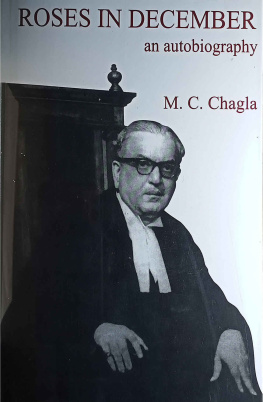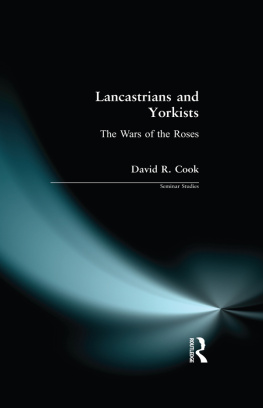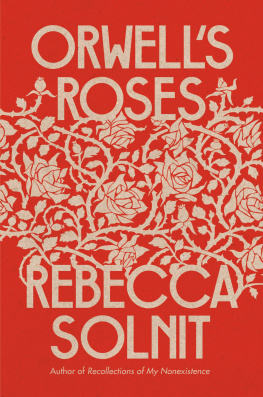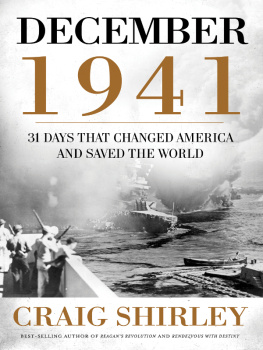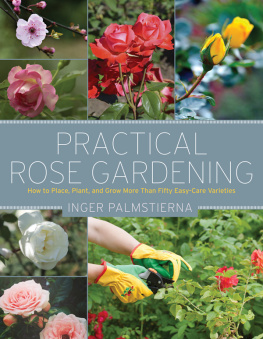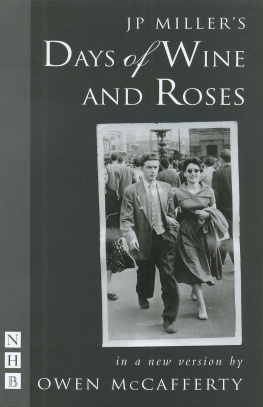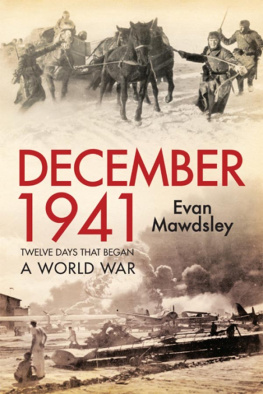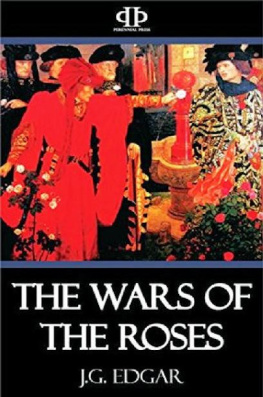M.C. Chagla - Roses in December: An Autobiography
Here you can read online M.C. Chagla - Roses in December: An Autobiography full text of the book (entire story) in english for free. Download pdf and epub, get meaning, cover and reviews about this ebook. year: 2021, publisher: Bharatiya Vidya Bhavan, genre: Science. Description of the work, (preface) as well as reviews are available. Best literature library LitArk.com created for fans of good reading and offers a wide selection of genres:
Romance novel
Science fiction
Adventure
Detective
Science
History
Home and family
Prose
Art
Politics
Computer
Non-fiction
Religion
Business
Children
Humor
Choose a favorite category and find really read worthwhile books. Enjoy immersion in the world of imagination, feel the emotions of the characters or learn something new for yourself, make an fascinating discovery.
Roses in December: An Autobiography: summary, description and annotation
We offer to read an annotation, description, summary or preface (depends on what the author of the book "Roses in December: An Autobiography" wrote himself). If you haven't found the necessary information about the book — write in the comments, we will try to find it.
Roses in December: An Autobiography — read online for free the complete book (whole text) full work
Below is the text of the book, divided by pages. System saving the place of the last page read, allows you to conveniently read the book "Roses in December: An Autobiography" online for free, without having to search again every time where you left off. Put a bookmark, and you can go to the page where you finished reading at any time.
Font size:
Interval:
Bookmark:
BHAVANS BOOKUNIVERSITY
ROSES IN DECEMBER
AN AUTOBIOGRAPHY
By
M.C.CHAGLA
2019
BHARATIYA VIDYABHAVAN
Kulapati K. M Munshi Marg, Chowpatty
Mumbai 400007
All rightsreserved by the Publishers
Bharatiya Vidya Bhavan
Kulapati K. M Munshi Marg ,
Chowpatty, Mumbai 400007
First Edition, September 30, 1973
Second Edition, January 30, 1974
Third Edition, April 30, 1974
Fourth Edition, September 30, 1974
Fifth Edition, January 30, 1975
Sixth Edition, April 30, 1975
Seventh Edition, February 28, 1977
Eighth Enlarged Edition, April 30, 1978
Ninth Edition, April10, 1990
Tenth Edition, December 19, 1994
Eleventh Edition, December 1, 2000
Twelfth Edition, February 17, 2011
Thirteenth Edition, May 14, 2012
Fourteenth Edition, January 13, 2014
Fifteenth Edition, November 22, 2016
Sixteenth Edition, April 6, 2018
Seventeenth Edition, October 10, 2018
Eighteenth Edition, August 14, 2019
First e-edition: 2021
"Godgave us memory
that we might have
roses in December"
To
My Wife
whose loyalty and devotion
will always abide with me
as one of my most precious
memories
A Book isgenerally the result of co-operative effort. It is not what the author writesthat ultimately gets published. He receives suggestions, criticism, advice asto what to omit and what to put in. Most important of all, he must be persuadedto write it in the first place. The book may be in his mind, and might remainburied there. The literary adventure begins to take shape when the first lineis written and then, unfortunately for the reader, the explosion follows.
I owe theidea of writing this book to my younger son Iqbal. I had an eye operation, whenI was compulsorily prevented from reading anything for a whole month. As isusual with me, I was fretting and fuming and was looking round for something todo. Iqbal placed a tape recorder by my side and told me to start dictating thebook then and there. With considerable hesitation, and for want of anything betterto do I started. Almost all the first 75 pages were dictated on the taperecorder. I am deeply grateful to Iqbal's wife, Roshan, for taking down therecording in shorthand and typing it. I know what a laborious and wearisometask it was. It was cheerfully and ungrudgingly performed. The rest of the bookwas dictated to stenographers, most of it to Mr. Pithavalla, whose services Mr.Nani Palkhivala very kindly lent to me. He did an excellent job and sent thetranscript exactly as I had dictated it - not a distorted unintelligibleversion of what I had said.
I haveworked fairly hard throughout my life; but the labours involved in writing thisbook was something for which I was never prepared. If I knew, I might havepaused, perhaps withdrawn from the undertaking to the undoubted relief of mypotential readers. The dictation, apart from tape-recording, took over 60hours, and almost twice the time was taken up in going through the files of 50years - press cuttings, speeches, broadcasts and letters, most of which hadbeen painstakingly preserved by my wife.
I am deeplythankful to Mr. Morarji Desai for the use I have made of some of his letters,to the Jawaharlal Nehru Memorial Trust for the letters of Nehru, and also toAll India Radio for quoting an extract from the broadcast I made on 27th May1958 entitled "As I Look Back".
I have alsoto thank Iqbal for going, through most of the book chapter by chapter, andmaking valuable suggestions many of which I have incorporated.
Theselection of a publisher is a crucial decision which an author has to take Thesuccess or failure of a book depends as much upon what the author has writtenas upon the manner in which it is published I am very happy that I selectedBharatiya Vidya Bhavan - largely because it was the creation of Dr K. M Munshiand my close relationship with him. I have to thank its Executlve Secretary andHead of the Department of Publications Mr. S. Ramakrishnan and its ProductionManager Mr. M.K. Rajagopalan for the assistance they gave me and the way theyworked with a dedicated spirit to make the book a model of good production. Ihave also to thank the Press, the Inland Printers, for the very fine job theyhave done. If the book fails to meet with the approval of the reading public,it will certainly not be due to the Publishers or Printers.
And finallyI must m anticipation express my thanks to the reader. If he has had thepatience to go through to the end of the book, my labours will not have gonewholly unrewarded It is rarely that the life of any individual is of genuineinterest to others But I have played a small part in the unfolding of India'shistory in the last 50 years - and the interest of the book to the readershould lie not in what I did or what I said, but in the pattern of history inwhich individuals are only instruments; it is through them that the finaldesign is worked out.
-M. C. CHAGLA
September30, 1973
I was, in amanner of speaking, midwife to the birth of Roses in December: I, therefore,thought I should record a few recollections on the occasion of the CentenaryEdition. To call it a Foreword would have been presumptuous and pretentious: itis but a postscript, a mere footnote to the great creative endeavour of my father- not only the story of his life but the life of the times.
I have onlyjust finished reading the proofs of this edition: I could not but marvel, itmay be for the umpteenth time, at the remarkable, the unique, the infinitely varied and accomplished life he hadled. It is given to few to claim the variety of positions, meet the assortmentof personages and pursue the enormous and diverse interests that he did. Somany have spoken of the public man - I thought I would speak of the father seenthrough the eyes of a son.
To ussiblings, my sister Husnara, my brother Jehangir and myself, he was a father weloved and respected, whose approval we yearned for and whose displeasure wedreaded. He did not believe in corporal punishment and never raised a hand on anyof us: he did not need to, a frown was sufficient to still the mostundisciplined child.
I was thebaby of the family, seven years younger than my sister, five younger than mybrother. From as young an age as I can remember, I idolized my father, a sentimentthat never diminished with the passing of the years. I basked in the warmth ofhis successes and felt acutely the pain of his disappointments. Nothing gave megreater pleasure than to know I had not failed him; nothing greater hurt thanto know that I had fallen far short of his expectations. I remember I had justjoined St. Mary's School in the 1st Standard from anursery that offered no conventional tuition. I was totally lost and at the endof the first year I was at the bottom of the class. My father asked me, withpatience and understanding, whether I would like to repeat the class so that Ishould not later flounder. I begged that I be given a chance and I would notdisappoint him - I was spurred on to do better and so I did: my reward was hisapproval.
I was bornsome two years before he accepted a judgeship: my recollections of him as apuisne judge do not have the focus and clarity of the years in Chief JusticeHouse. He has written that he never brought work home from Court - a fact towhich I can bear witness. The first thing in the morning were the dailynewspapers read over a cup of tea; a judgement or two that would have beendictated the previous day would be corrected, followed by a shave and bath. Bythis time his secretary, Rao, would have arrived and all correspondenceimmediately dealt with and replies dispatched immediately. Next would be ahearty breakfast followed by a cigar that would see him to the chambers of theChief Justice where administrative work would be quickly disposed of before thecustomary meeting of all the judges outside his chambers; a final cigarette andinto Court for a full five hours of dispensing justice.
Font size:
Interval:
Bookmark:
Similar books «Roses in December: An Autobiography»
Look at similar books to Roses in December: An Autobiography. We have selected literature similar in name and meaning in the hope of providing readers with more options to find new, interesting, not yet read works.
Discussion, reviews of the book Roses in December: An Autobiography and just readers' own opinions. Leave your comments, write what you think about the work, its meaning or the main characters. Specify what exactly you liked and what you didn't like, and why you think so.

